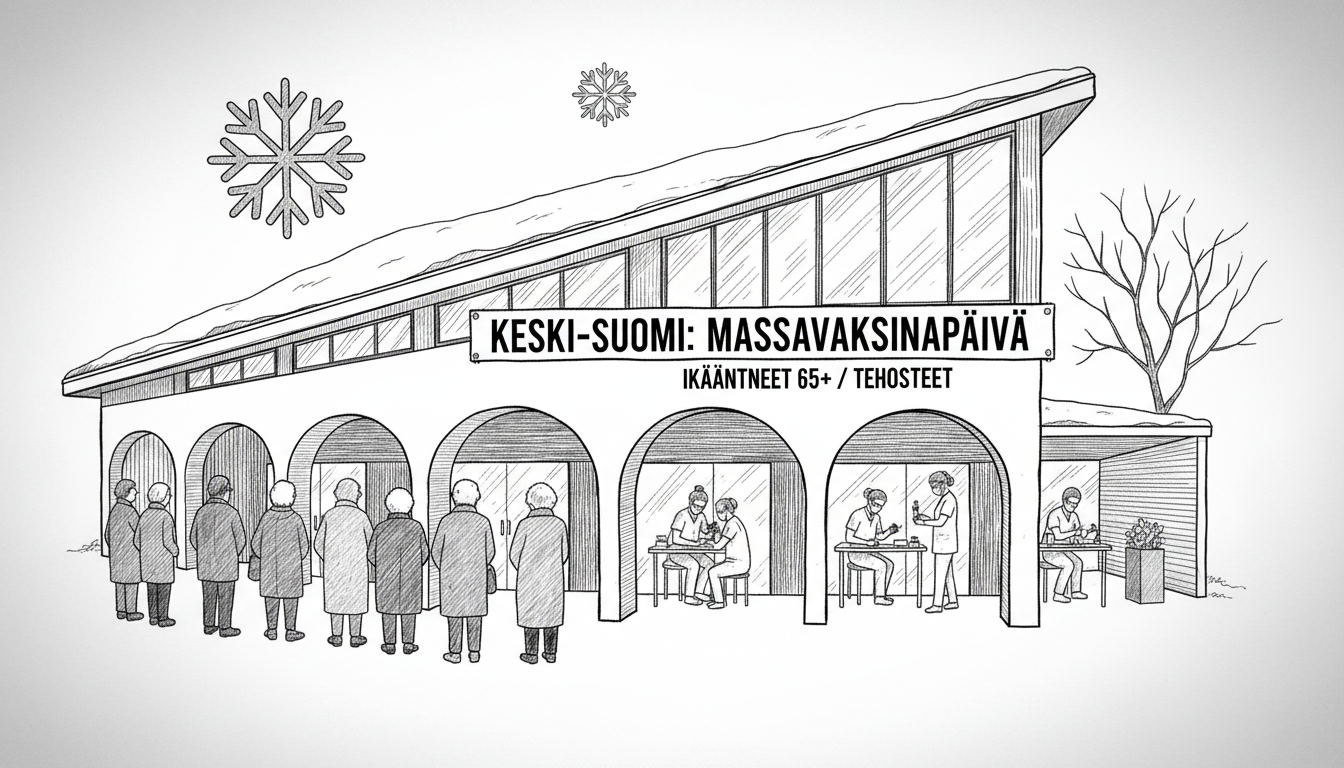Central Finland welfare district organizes mass vaccination events this Saturday. The clinics will operate in five cities across the region. Locations include Jyväskylä, Jämsä, Laukaa, Saarijärvi, and Äänekoski.
All residents aged 65 and older can receive influenza vaccines during these vaccination days. Severely immunocompromised adults also qualify for both influenza and COVID-19 booster shots.
Health officials clarify current vaccination recommendations. The Finnish Institute for Health and Welfare advises COVID-19 boosters only for those aged 75 and older this season. The recommendation extends to seriously immunocompromised individuals. Adults over 18 with multiple COVID-19 risk factors also qualify for boosters.
A senior nursing manager emphasized the age restrictions in an official statement. People turning 65 this year cannot receive COVID-19 vaccination based on age alone. The policy follows national health authority guidelines.
Finland's vaccination system operates through regional welfare areas. This structure replaced older healthcare models in recent administrative reforms. Central Finland represents one of these new welfare districts.
The approach reflects Finland's proactive public health strategy. Nordic countries typically prioritize preventive healthcare and population-wide protection. Finland maintains high vaccination coverage compared to European averages.
International residents should note these regional vaccination opportunities. Finland provides healthcare services to all legal residents regardless of nationality. The country's public health system aims for comprehensive coverage.
Mass vaccination days help manage seasonal healthcare demands. They provide efficient access for eligible groups before winter peaks. Similar events occur across Nordic countries during autumn months.
What does this mean for Central Finland residents? People aged 65-74 should focus on influenza vaccination this season. Those with specific health conditions might qualify for additional protection. Everyone should consult healthcare providers about personal needs.
The vaccination policy balances resource allocation and risk assessment. Health authorities prioritize the most vulnerable populations first. This strategy aims to prevent healthcare system overload during respiratory illness season.
